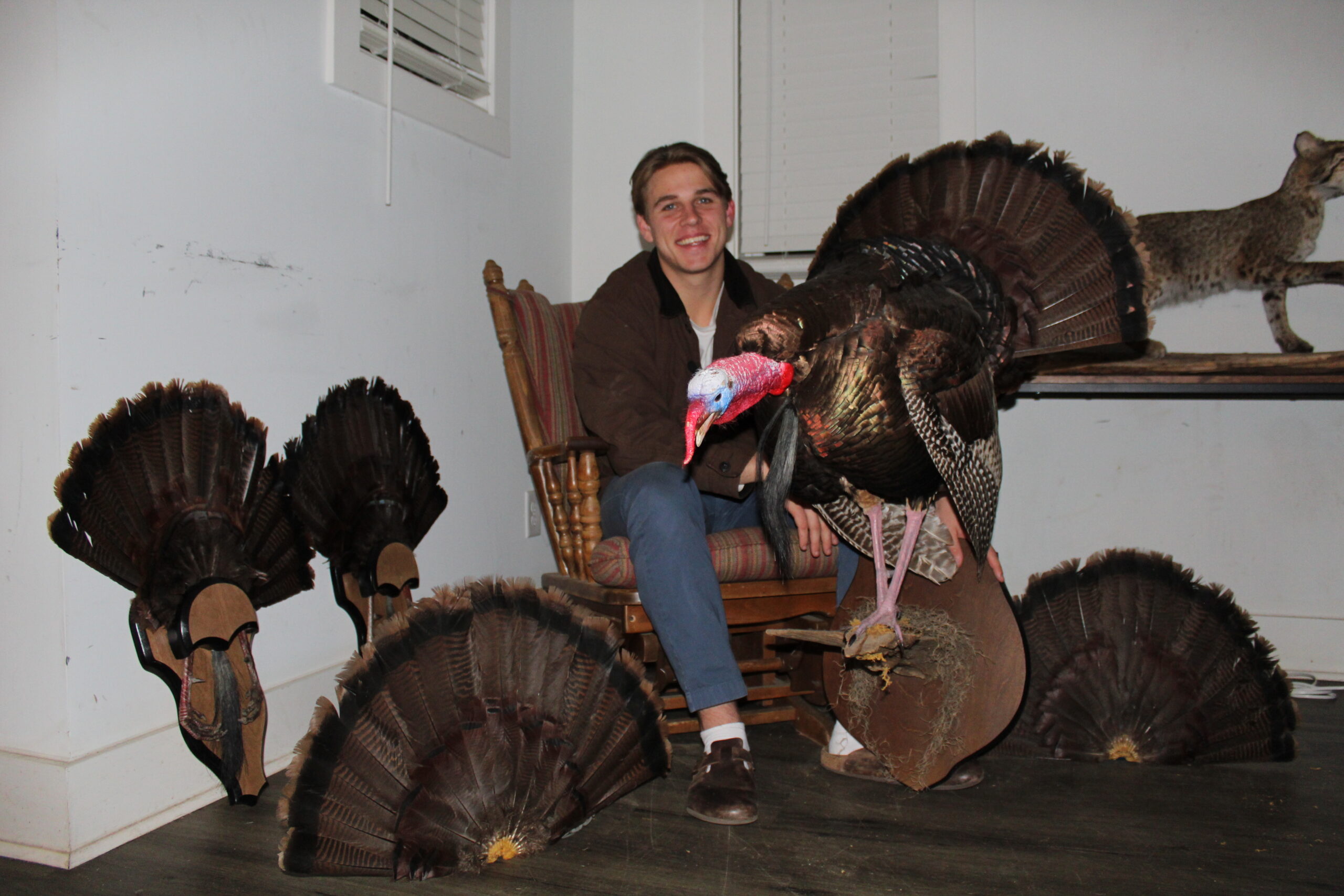
Brock unscrewed the turkey from the wall and plopped himself down in a wooden rocking chair, bearhugging the bird, a wide grin on his face. He traced his finger gently down the spine of the bird as he talked about his greatest passion in life: hunting wild turkey.
For most, a turkey serves a purpose on Thanksgiving, but for others, a turkey is a way of life. Brock, a 22-year-old student at the University of Georgia has traveled across the country to hunt wild turkey, harvesting nearly 70 birds in his lifetime.
But Brock is worried.
The state of Georgia, as well as the majority of the country, has seen an alarming decline in the wild turkey population in the last 20 years, troubling both hunters and experts alike.
Why It’s Newsworthy: A decline in the turkey population highlights a broader issue concerning the overall well-being of the environment.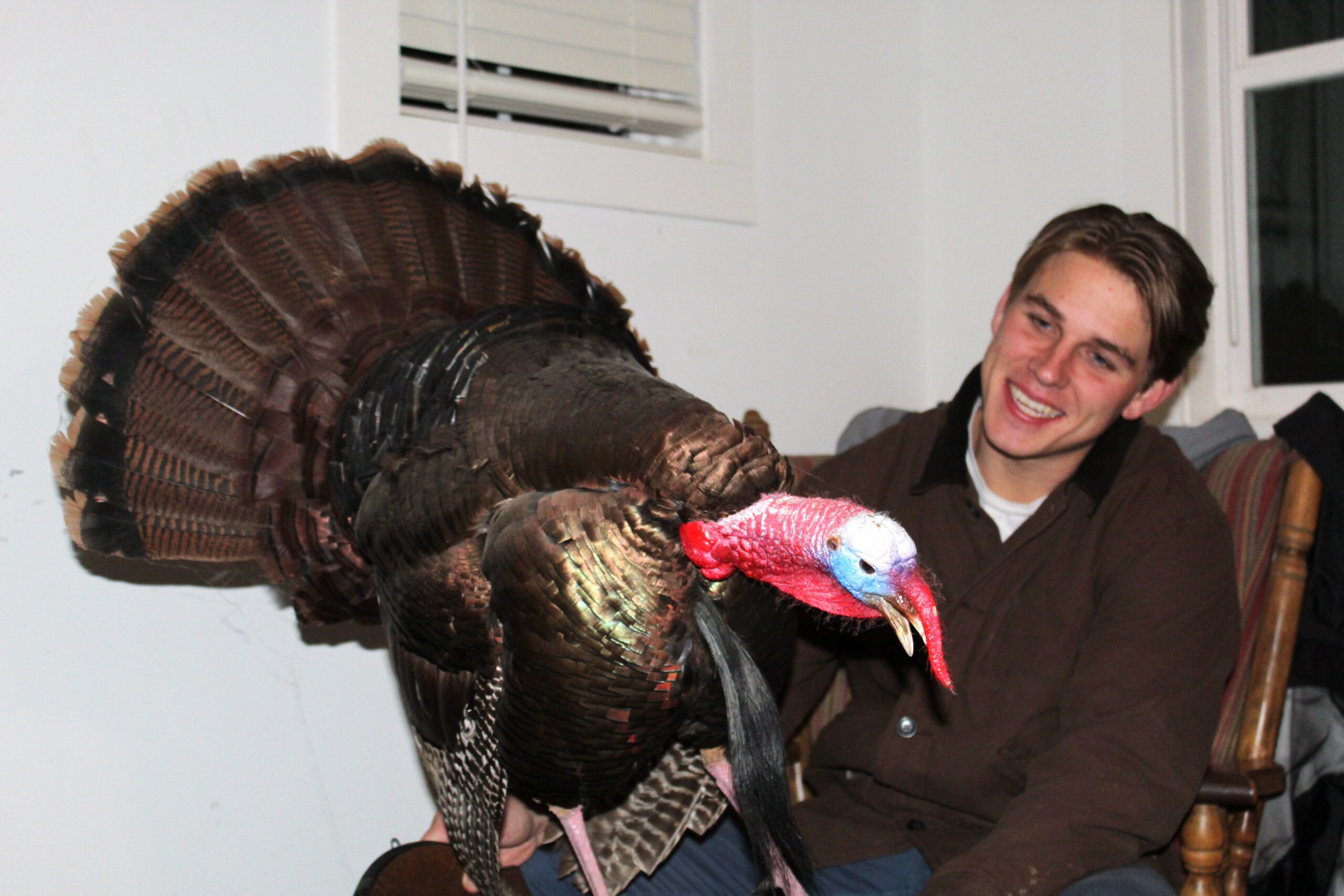
“It feels like a loss of a way of life for a lot of us,” said Brock. “This is what our spring is about.”
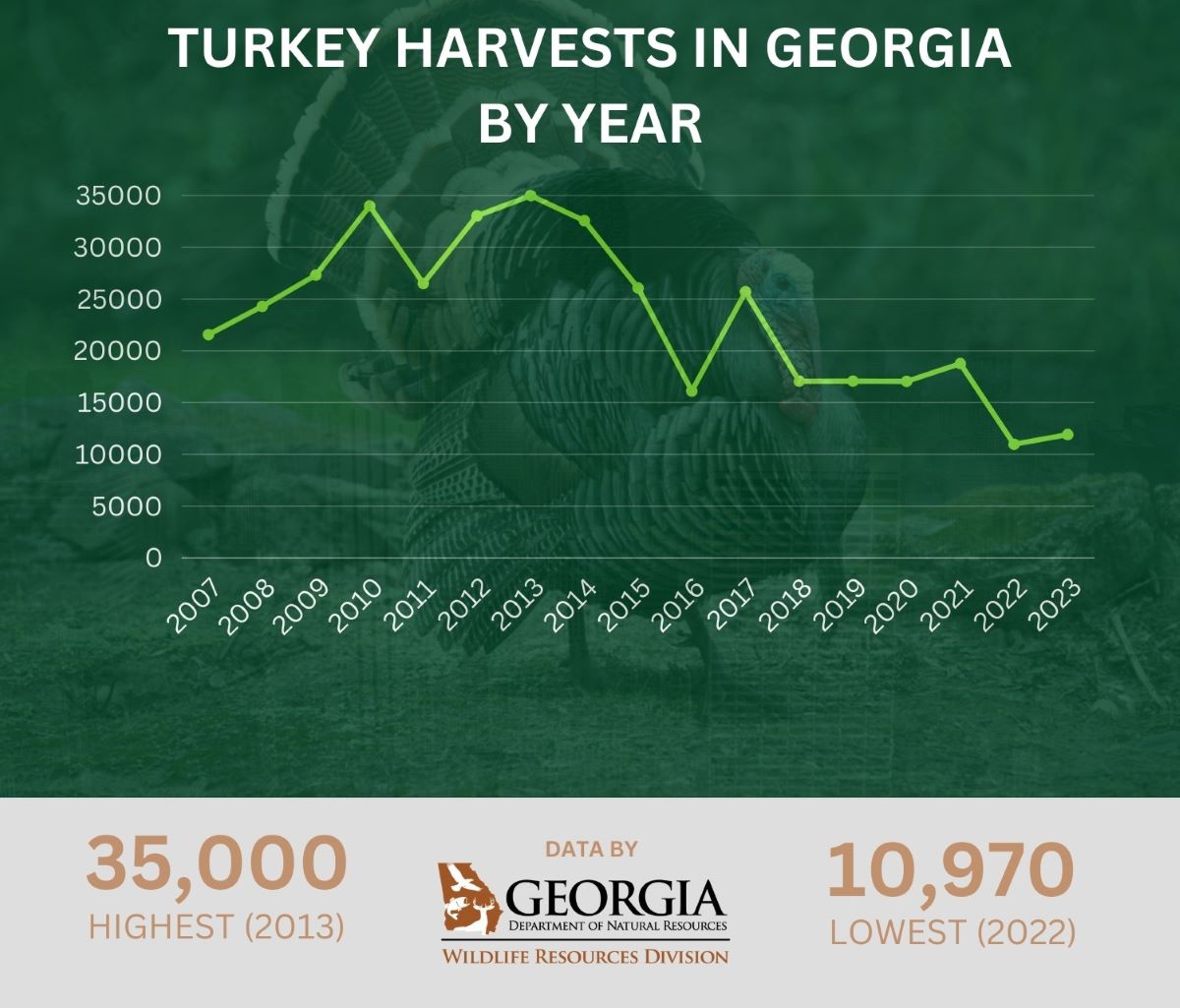
According to data collected by the Georgia Department of Natural Resources (DNR), 35,000 turkeys were harvested in 2013. In 2023, only 11,911 turkeys were harvested, which is a nearly 66% decrease over a decade.
“We’ve been concerned about turkey populations in Georgia and our surrounding states for a while now,” said Georgia DNR turkey biologist Emily Rushton.
The History
In the early 1900s, wild turkey nearly became extinct as settlers pushed westward, leaving an estimated 30,000 birds scattered across all of North America. In the late 1960s and early 1970s, Georgia researchers began to move turkeys around to forested habitats, repopulating areas leading to a peak in population in the 1990s and early 2000s with over 375,000 birds across the state.
Unfortunately, the glory days of the gobbler seem just a distant memory two decades later.
The Science
The most common measure of the health of the turkey population is the poults, or baby turkeys, per hen, tracked each summer by scientists. Twenty years ago, the DNR reported 3.5 to 4 poults per hen. Currently, there are 1.5 poults per hen. A number Rushton said is simply not sustainable.
“Whatever has been happening with this reproduction issue has been happening all over,” said Rushton, noting the decline is not limited to Georgia.
Many states are seeing a decline. Kansas and Mississippi suspended fall turkey hunting, and scientists in Missouri and Kentucky are also closely studying the trends in population numbers.
Why is this Happening?
Rushton said there is general decline in bird populations, insect populations, widespread habitat alterations and even loss of habitat entirely across the world.
A perfect storm of many factors, she said. Habitat loss, disease and widespread development.
“This is something that the average person should be concerned about,” said Rushton.
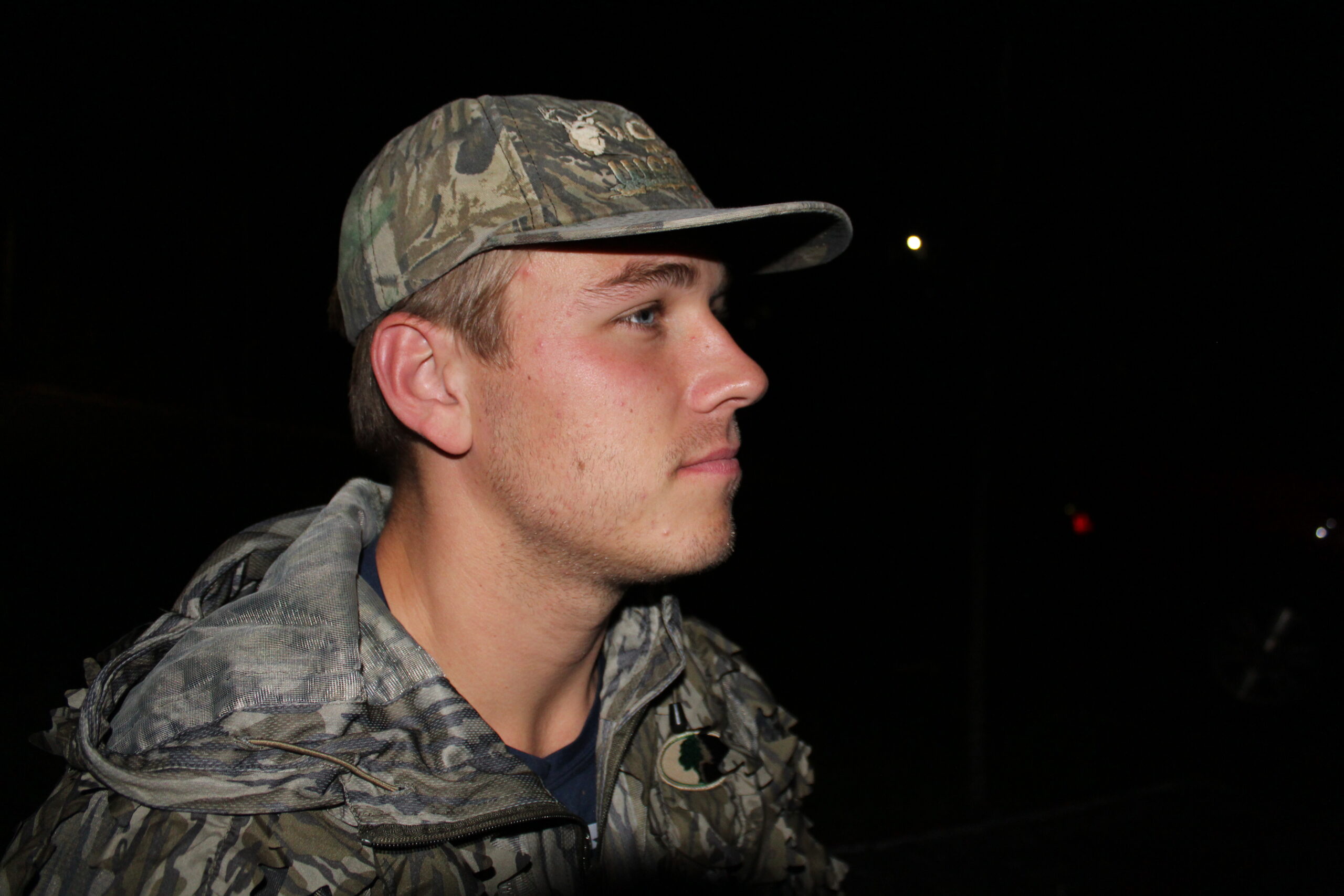
Back in Georgia, Brock pushed his turkey call, a small semi-circle device made from rubber and metal, into the roof of his mouth. A series of effortless clucks, yelps and purrs echoed across his living room as he demonstrated how to imitate a hen trying to mate.
In an upstairs bedroom, his roommate responded with a gobble, imitating a male turkey. The house erupts with laughter, but Brock’s smile quickly fades.
“A lot of us could not imagine not being able to go out there on a cool spring morning,” said Brock. “You go to a property where you normally hear 10, and not one answer, it would be heart-wrenching.”
Bennett Ulm is a junior majoring in journalism.


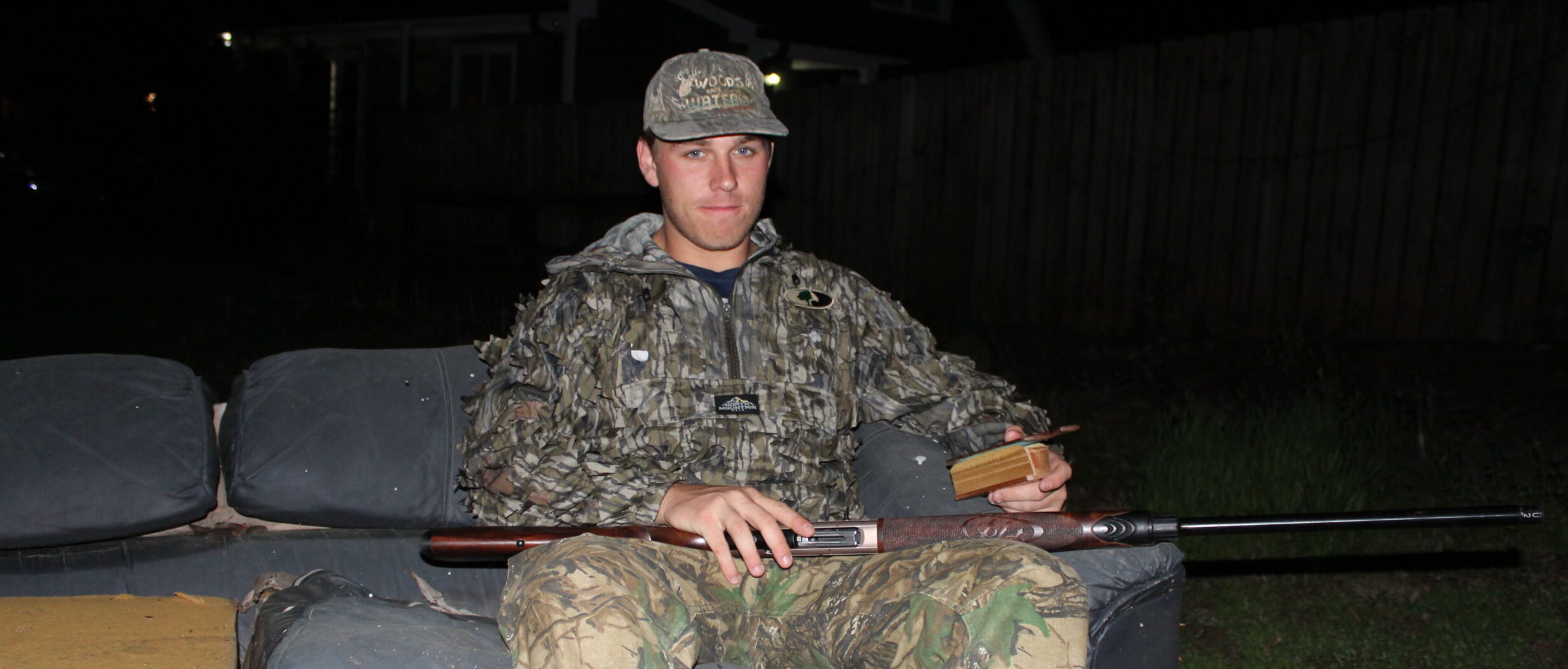



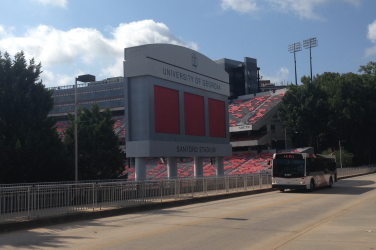

Show Comments (15)
Scott
Dude’s 22 and killed 70+ turkeys?
I’m 60 and hunted them my whole life with great success. Nowhere near 70.
Bout 10 years ago quit killing them. Still out in the wood 4-5 days a week in the spring.
Got nothing against whacking them, but letting them walk is a huge thrill.
Buddy of mine and I have boat oars we notch if we call one in to 10 yds. Close enough to “hit them with a paddle”
Try it, it’s rewarding and a huge kick.
Also been with 2 “kids” (one in Georgia, the other in South Florida) using the new “Hot” loads and fancy choked out turkey guns. 60+ yds and no turkeys.
I was totally pissed
Call em in close and let em walk. It’ll be seared in your brain.
Joanie
In this article…
“Why is this Happening?
Rushton said there is general decline in bird populations, insect populations, widespread habitat alterations and even loss of habitat entirely across the world.
A perfect storm of many factors, she said. Habitat loss, disease and widespread development.
This is something that the average person should be concerned about,” said Rushton.”
Weird, coyotes not even mentioned yet they have a “cull” to save the turkeys. Just another flimsy excuse to kill something in hopes the public will think you’re a heroic “conservationist”, lol.
It’s ridiculous.
Derek
You’re solely looking at one predator when raccoons, opossums, etc contribute to predation of turkeys. Habitat mismanagement and habitat loss creates more successful predation. ALL of these predators have existed with turkeys prior to Europeans arrival. They didn’t wipe out the turkeys. Humans did after the 1700s. I don’t blame the predators for doing what they do, but blame humans for messing up the balance and the habitat that creates more easy predation.
James
Need to slow development. No woods and fields = no turkeys or any other wildlife and no hunting. The development in southeast Georgia is beyond sickening.
Ernesto
Lots of turkeys here in WI. This story is disheartening I had no idea! Predators are increasing it seems at an alarming rate. I have witnessed turkeys being hunter by predators several times. This year within in 5 min of a deer bow kill I had a bobcat on the carcass. A good predator population means a good ecosystem tho rt? But sooner or later the food source will diminish. Hope it turns around for everyone!
Clint
It’s in the junk being lined across the sky. Beyond that, it’s releasing of rattlesnakes in areas that might not of even had them historically, so way to go DNR. Same can be said about bobcat and cougar running around in areas they shouldn’t be in an ever increasing population with no control measures in place. No one coon hunts or traps anymore and coon population is 10 times what it was when turkeys were reintroduced in the ’80’s. 3 years ago we had 40 plus birds in my local area, now I’m only seeing one tom and one hen that are three miles apart and the hen didn’t appear to nest. The other problem not being talked about is illegals killing all our game. Seen and heard numerous reports from people I know finding dressed out wild game, deer mostly, sometimes on private property but heavily on state owned property. Our deer population is almost non-existent now also. I’m in the forestry business, I’m out in it everyday, so I see things that are very alarming.
Eric
Every turkey hunter needs to trap. The decline in trapping and the influx of hunters on top of declining habitat and pesticides use are ALL factors. Our eco system has taken a real hit due to the declining number of trappers. Anyone that believes trapping is cruel, don’t have a clear understanding of the detrimental effects that over population causes.
We all need to come together. The wild turkey is one of America’s greatest come backs. Thank you NWTF!
Glenn kercher
I think 1 gobbler a year is sufficient pa gives a second tag for 20 bucks I think it’s a money thing more than help the flock
Russell
We’ve been turkey hunting since the late 80’s. Live in Ky.
4 or 5 of us.
Numbers way down. Their still killing a good number but hunter numbers at way up.
Buddy has a farm where he started trapping raccoons on his place to see if that would help.
Predators we are coming up with are are severely taking the numbers down
Raccoons, opposums, hawks, etc. No one traps anymore. Coons and opposums get in a nest and eat the eggs.
After trapping one season his turkey polt numbers doubled. 2 years of this and birds on his place doubled. Just letting u know what we tried and is helping.
Mike
The wild turkey is a symbol of our Country, you’ve done a admiral job mounting the birds,your very skillfull,that was also a symbol of this country years ago,your a good young Man! I was in Georgia at fort Benning, over 50 years ago, but I remember the pines and red soil, Good luck young Man
Charles
It’s the coyotes, stupid!
Neyuk
lol, the turkey are still here in Ga. Those morons need to find other ground to hunt. They don’t see birds because birds a smart and know where they will get shot at and avoid those areas. I grew up hunting birds. I have watched gees lock up just above reach of our 12 ga. shotguns and land on protected land directly across the train tracks. I see wild turkey pretty frequently here in W. central Georgia. There are plenty still around.
Chris
Your not looking at the bigger picture bud. Their numbers are way down.
John s
To many hunters per turkey is the #1 reason for decline of the wild turkey
Nola
I agree that the decrease in wildlife populations is diheartening and inevitable with habitat destruction. I do wonder if the turkey population has also been affected by the rise in coyote populations in Georgia and other states. I wonder what Georgia’s DNR Division and other researchers think.